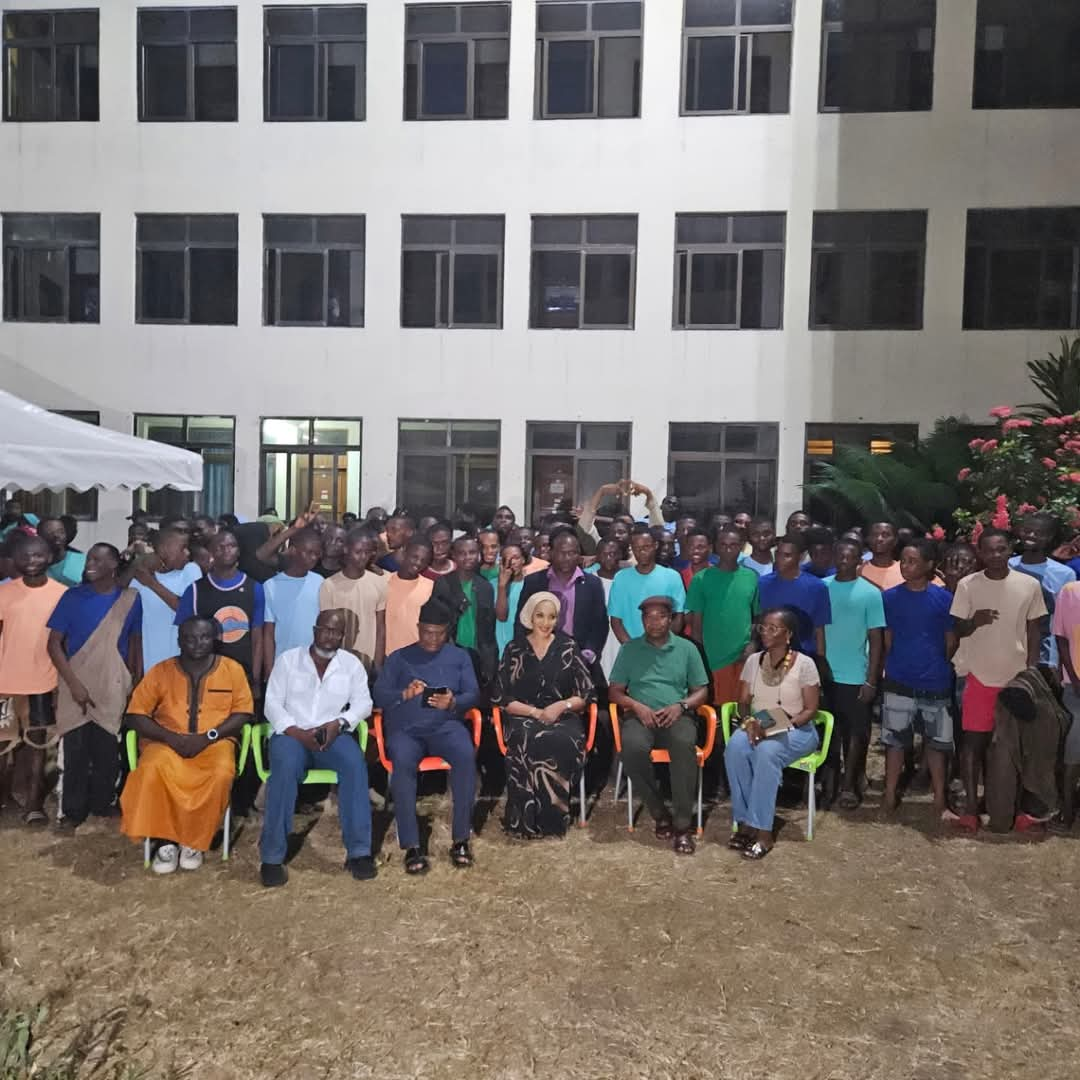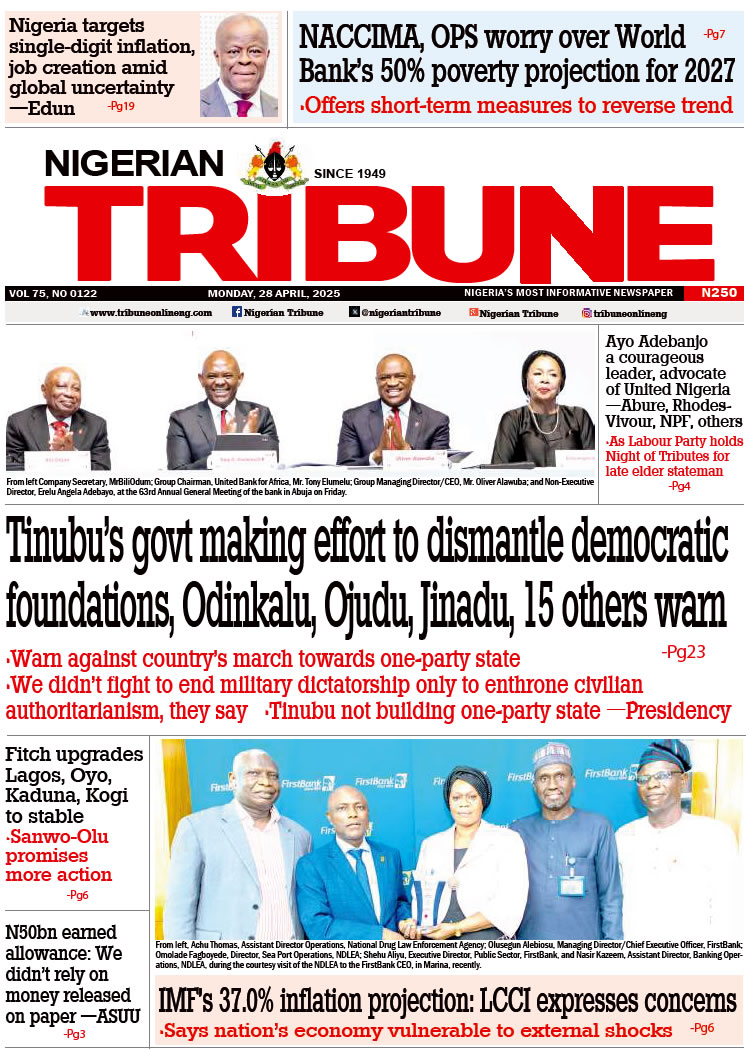The Federal Government has lauded Ghanaian authorities for rescuing at least 219 young Nigerians who were trafficked to the West African country and forced into cybercrimes.
It also reiterated its commitment to providing youth with technical education and skills to curb the growing unemployment rate.
Minister of State for Foreign Affairs, Ambassador Bianca Odumegwu-Ojukwu, made these statements when she visited the Economic and Organized Crime Office (EOCO) in Accra, Ghana, where the trafficking victims were being held.
In a closed-door meeting with the Executive Director of the Agency, Mr. Bashiru Dapilah, and two of his directors, the minister expressed gratitude to the operatives for doing their job professionally, especially for treating the victims with dignity.
ALSO READ: Nigeria yet to minimise wasteful spending, excessive borrowing – CISLAC
Odumegwu-Ojukwu, who was in Ghana for the official launch of the 50th anniversary of the Economic Community of West African States (ECOWAS) and the Extraordinary Session of the ECOWAS Council of Ministers on the withdrawal of Mali, Niger, and Burkina Faso, described the exploitation of innocent young people as callous and inhuman.
She said that trafficking was modern slavery—obnoxious and an example of man’s inhumanity to man.
The minister urged Nigerian youth to avoid individuals who might promise them irresistible job offers outside the country, explaining that such promises could be a bait to lure them into slavery.
She disclosed that the Nigerian High Commission in Ghana had alerted her of the incident last Thursday, detailing how the victims were held under inhumane conditions by the perpetrators before the successful sting operation that dismantled the criminal syndicate.
She said, “Prior to their rescue, these boys had been locked up in about 25 rooms within the estate where they were used to perpetrate cybercrimes. At the time of their arrest, many of them—having been confined in dark spaces with computers for weeks without being allowed outside—were unable to adjust their eyes to the sunlight when led outside. Some had been serially abused, with visible lacerations inflicted by their criminal ‘boss,’ while one had his legs broken for not handing over all the proceeds of his cybercrime.”
Addressing the victims at the Agency’s premises, she told them they were fortunate to have been rescued, pointing out that many had lost their lives in similar circumstances, while others remained incarcerated in jails worldwide.
“Count yourselves lucky because next time, it may not be a benevolent country like Ghana. It may not be in a location where we have excellent bilateral relations. There are countries that take cybercrimes very seriously, and by the time they lock you up, they will throw away the key. We are still trying to ensure that Ethiopia signs our exchange or transfer of sentenced persons MoU so we can bring back Nigerians trapped in their prisons,” Odumegwu-Ojukwu said.
“We are pleased that this commission has excellent relations with NAPTIP, and they have been kind enough. I was really humbled when the Executive Director said that their interest is not to send these young men back to Nigeria’s prison system; because that’s usually what happens. Under that scenario, they are obliged to hand you over to law enforcement and correctional facilities in Nigeria, and we know what happens next. It’s another cycle of relatives bringing food to you in prison,” she added.
The Minister emphasized that the government was committed to citizen-centered diplomacy as a key part of President Bola Ahmed Tinubu’s foreign policy.
She highlighted that the Renewed Hope Agenda of the Tinubu administration includes programs designed to give skills to youth, preventing them from engaging in crimes like cybercrime.
She urged the victims to seize this second chance by taking advantage of the federal government’s intervention programs.
“Know that East, West, home is best. So, when you return home, give the government an opportunity to equip you with skills,” she advised.
“I also want to commend other Nigerians in Ghana who are industrious, hardworking, and law-abiding,” Odumegwu-Ojukwu continued. “I can assure you that Ghana will have the support and cooperation of the Nigerian Government in the fight against organized crime. Our Economic and Financial Crimes Commission (EFCC) will want to be part of this to ensure that we are not seen as the headquarters of economic crimes.”
She called the operation a success story and a model for how bilateral relations should be leveraged to address economic and financial crimes.
Mr. Dapilah, the Executive Director of EOCO, explained how his team acted on intelligence to achieve this feat.
“We are not looking at this as a Nigerian crime because there is some backing from Ghanaian authorities. The estate where they lived was raided, and we arrested the owner, who will be prosecuted. We need collaboration between our two countries. The crime was committed here in Ghana, but we know that someone in Nigeria was behind it. These individuals have been rescued, but the next step is collaboration to apprehend the perpetrators.”
He urged Nigerian counterparts to assist in rounding up the criminals.
“Take this message back to Nigeria: we need cooperation to capture the perpetrators,” he said.
Dapilah also praised the majority of Nigerians in Ghana who are law-abiding and significantly contributing to the country’s development.
“We have a large Nigerian population here who are law-abiding, especially those involved in the spare parts business. Many run restaurants where we enjoy Nigerian delicacies,” he said.
He thanked the Nigerian High Commission for their close collaboration with the Agency, noting that Chargé D’Affaires Ambassador Dayo Adeoye worked closely with them.
Ambassador Adeoye reiterated that over 3 million Nigerians reside in Ghana, many of whom are thriving and contributing to Ghana’s economic development. He called for aggressive efforts to curb trafficking involving Nigerians.
In total, no fewer than 231 young Nigerians, including those intercepted in Ghana, are expected to arrive in Lagos on Friday, where they will be handed over to government officials.








